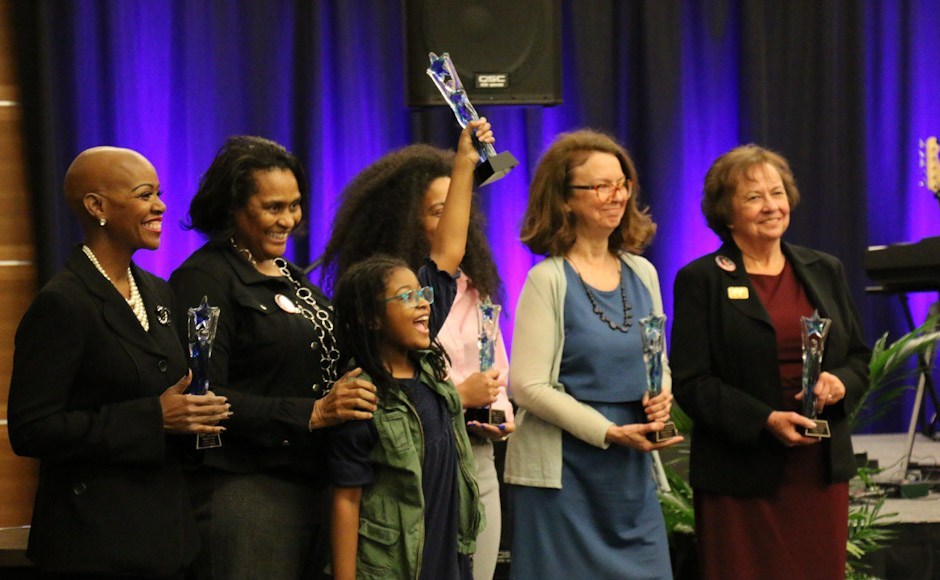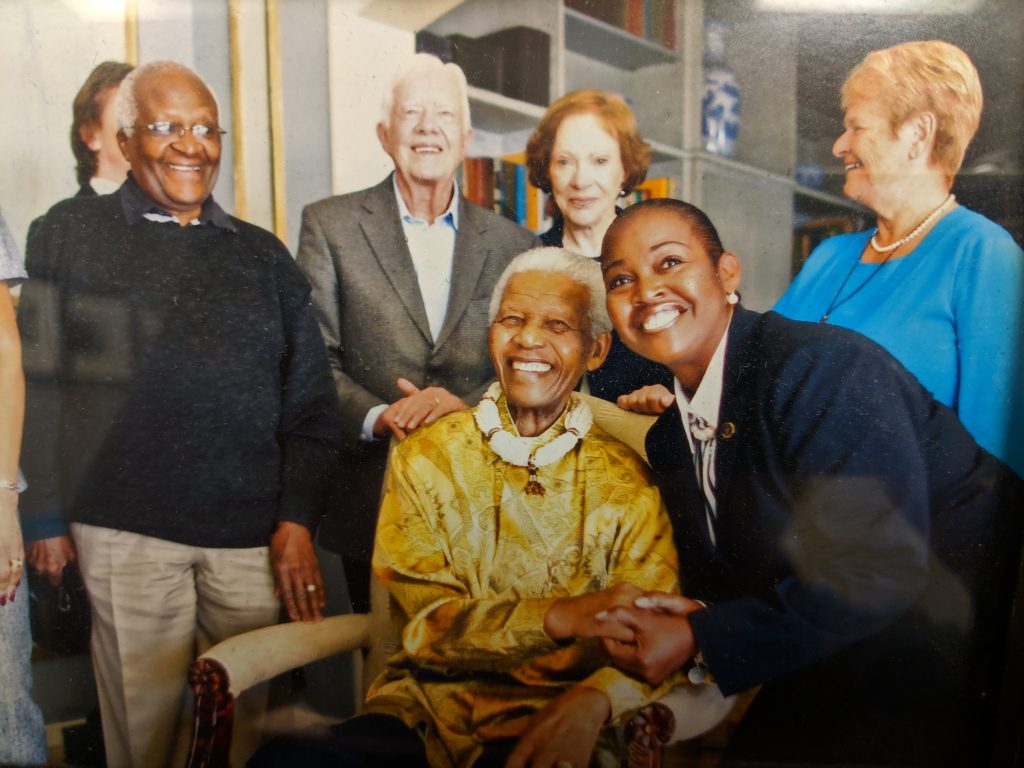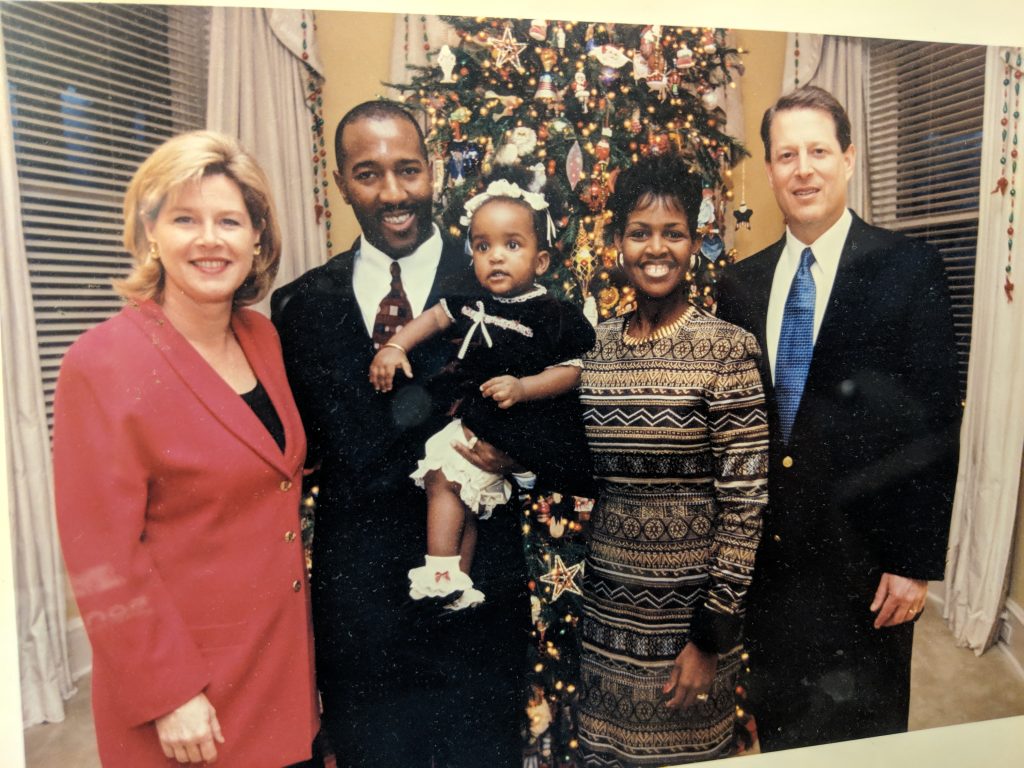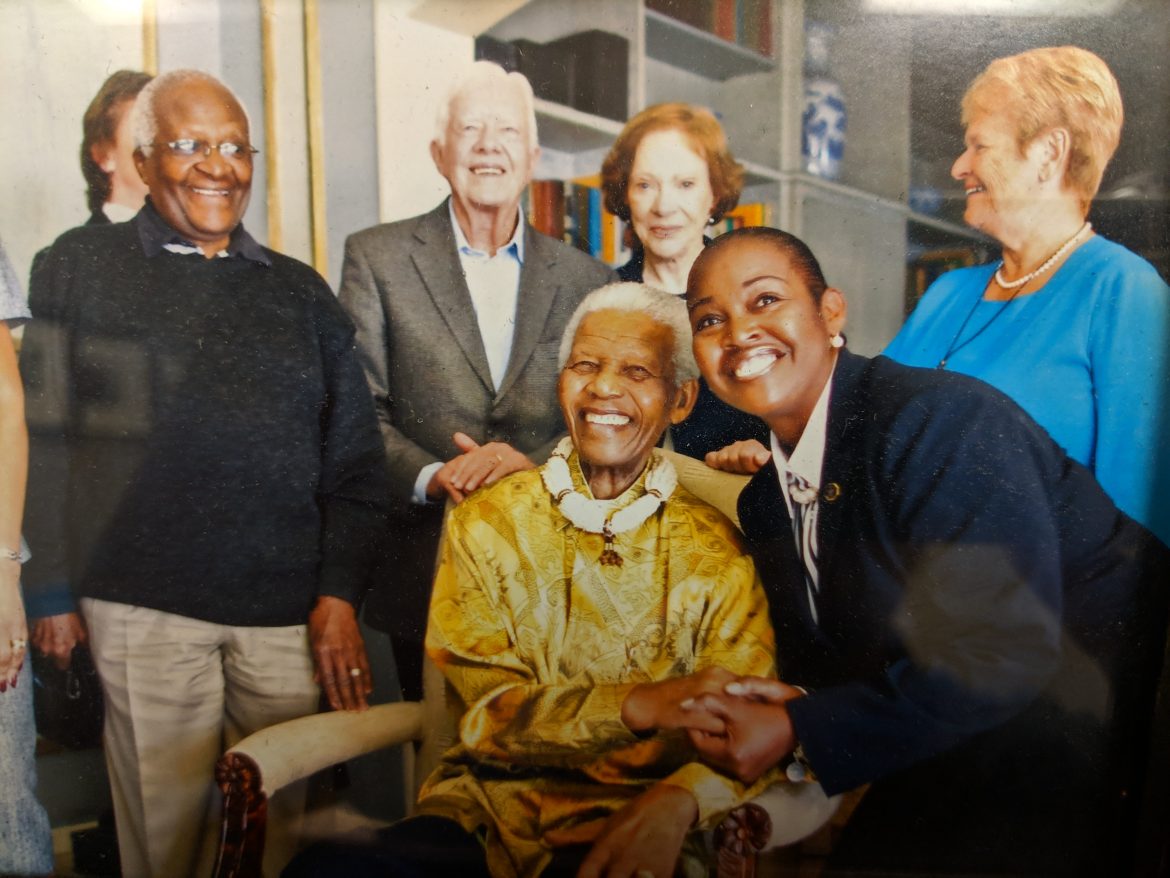“You can’t change the world, but you can change one piece of it.”
These are the words of professor Lynda Williams: teacher, role model, and crime-fighter extraordinaire. With over 35 years of work experience and thriller-esque stories to tell, Williams is MTSU’s first “Professor of Practice,” meaning her extensive street smarts are enough to open any academic doors.
Williams is somewhat of a celebrity throughout the university. Watch her stride across campus for even a few minutes and you will see countless students from every major flock to her, seeking an inspirational quip, wanting to see her daily fashion choices or simply basking in her unwavering confidence.
Her confidence hasn’t gone unnoticed by the university, either. As an example of the 2019 National Women’s History Month theme of “Visionary Women,” Williams was honored with the “Trailblazer” award, which “recognizes women who consciously built supportive, nonviolent alternatives and loving communities as well as advocating change,” according to the June Anderson Center for Women and Non-Traditional Students.

Lynda Williams, left, celebrates with her fellow “Trailblazer” honorees during MTSU’s 2019 National Women’s History Month kickoff ceremony March 12 in the Student Union Ballroom.
Williams sat down with the Student Voice to discuss her jaw-dropping career, her struggles as a minority woman, her best advice for students at MTSU and, of course, why there should be a movie about her.
In our brief conversation, it’s easy to see what all the fuss is about.
Thank you for so much for being willing to speak with me! So, could you describe your position here at MTSU?
“I am the first ‘Professor of Practice’ of Criminal Justice here at MTSU, and the first one of that type at all. And that’s based on my credentials. Unlike a lot of my colleagues, who have their doctoral … degrees, I do not — yet. But my appointment is based my over 35 years of work experience. So I bring a different skill set to academia.
“My mantra is ‘Where academia meets reality,’ because you can teach from the textbook, but when I put it in practical terms in which they can really understand, and I give my life experiences — and most of my experiences are based on my tenure in the Secret Service, which is 29.5 years — it makes it real, amazing and tangible, and then they can understand the concept better.”
Tell me about your experience! What was your career before MTSU?
“It all started as I was sitting here at MTSU as a senior back in 1985. An FBI agent came to my class and told us about his experience, and I was enamored. I said, ‘That’s what I what I’m going to be. I’m going to be FBI.’ So fast forward: When I graduated, I had my degree and everything, and I didn’t have the qualifications to be FBI. There were certain experiences and skill sets that they required, and as a full-time college student, I did not meet that. I did not become discouraged! I joined the sheriff’s department to get some working experience and started my career as a deputy sheriff in Augusta, Georgia, and even while I was going through that, I was still applying for different federal agencies. I was getting myself together mentally and physically, because I knew those are things I needed in order to be competitive.
“In 1988, I was accepted into the uniform division of the Secret Service — those are the men and women you see around the White House — and I said, ‘You know what? If they could just let me get my foot in the door, then this big size 10 will do it.’ And I did just that three years later; I became a special agent, and then it was history. I worked under the Clinton and Gore administration, I was with Vice President (Al) Gore as he went through the campaign trail, and even as he became an adjunct professor here at MTSU. The highlight of my career was when I was the country attaché to South Africa for the Secret Service, most notably during the World Cup, and I got to meet President (Nelson) Mandela. … I always said that one day I was going to retire to Middle Tennessee, and that I wanted to come back to my alma mater to give back. And God created it to be so.”
What was your favorite memory in that career?
“It was when I was in South Africa. In all of my worldly travels and all of my encounters, I’m not star-struck, not easily. I give people their props, but you know how people say, ‘Oh, I gotta take a picture, I need an autograph’ — I’m not that person. But. The day I met Nelson Mandela — and he’s part of this group called the Elders group, along with Desmond Tutu (archbishop emeritus of Cape Town and Nobel Peace Prize laureate), President (Jimmy) Carter, Kofi Annan (former U.N. secretary-general and Nobel peace laureate) — I was on my orders to come back to the United States. And I was very familiar with the group … but Mandela wasn’t always around. So they were having this photo shoot, and he was actually going to be there! And I was like, ‘Oh my God, I’m not going anywhere, I have got to see this man!’

MTSU Criminal Justice professor Lynda Williams pictured with the late Nelson Mandela and former U.S. President Jimmy Carter and former First Lady Rosalynn Carter. Image provided.

Lynda Williams pictured with former U.S. Vice President Al Gore and his wife Mary Elizabeth Aitcheson Gore. Image provided.
When he came in the room, I said, ‘Oh my God, I have got to take a picture!’ So, I, being that person in charge of all of the Secret Service operations, I stood in the corner with the detail leader that was the special agent in charge for Carter. We had already decided (that) when I get my chance, you’re going to snap this picture. So when I got the chance, oh. My god. You would have thought I won Miss America. I gasped and jumped across the carpet — because they had rolled it so his walker wouldn’t get caught in it — and I lost it. I kissed him on the cheek and said ‘God bless you.’ And he kissed me back and said ‘God bless you!’ Then Alex — who was supposed to have the camera — he missed the opportunity because everyone was laughing at my reaction. But the event photographer took that picture and a whole series of pictures with me, so I got all of my pictures with Mandela. And they were saying, ‘You know, you’re a blessed child.’ Because most people don’t get to see him or touch him.
Well. A week later, President Clinton came over, and we were at the Mandela Foundation, so there was another group picture. I went and shook his hand, and I got another picture with him. So they started calling me ‘The Blessed One’ because they said, ‘Never does anybody get such an opportunity.’ So that has always been one of my highest moments.”
Tell me what you love so much about your field.
“To have made a difference, to break barriers that have not been broken into — you know, being a female, and an African-American female — and being a single mom. When people tell me I can’t, I use it as inspiration to say ‘I can.’ But the greatest achievement now is that all this has come to fruition, and to actually pour it back into the students.
You know, on the first day of school, I ask, ‘What do you want to be?’ because you’ve got to have a goal. And even if you change it, you have something you’re aspiring to be. And don’t wait until you graduate to see if you meet those qualifications. I don’t want them to go through the experience I did, so that’s why I bring in subject matter experts, that’s why I talk to them one-on-one, and I connect them to people in the profession in which they want to go into.”
Describe the difficulties of being the first African-American female in your position in the Secret Service.
“You had to be twice as tough to even be considered half as good. You just had to be on your game. You had to know your job, you had to do it well, you didn’t display your weakness — but your contemporaries could. Because you were different, you know, you were judged differently. It was challenging in that I worked in a predominately white male society, but I think it’s how you present yourself. I didn’t have many struggles; I gave respect, and I earned respect. For some of my other colleagues, my female peers, they struggled. There’s a lot of people that started on their journey that did not complete their journey. It was through my faith and my strong support from my family. You just had to be on your game. And I walk by faith. I believed in that, I prepared myself and made myself the best person that I could be. First and foremost, I was my daughter’s mom. But I tried to not let that interfere because when I came on duty, they want to see an agent. They don’t care about your personal life. But I had some good mentors, and I had some wonderful support, and some great cheerleaders along the way.”
Why do you think criminal justice is so important for students to learn?
“It’s a cornerstone in our society. It’s what keeps everything in check. It’s something you as young Americans need to know, need to understand. Because criminal justice is around us every day. It’s how we act, how we live, how you choose to stay on this side of the law. It’s a thin, thin line. I tell people you have your civil liberties and freedoms as Americans, but you have to do it in a certain way. So I think it’s stronger for you to operate in that knowledge, and I think that it helps for a better community. Because you can be the change.
And that’s what I try to tell my students. Because you can’t change the world. I know, for example, I made a big difference in the Secret Service in the way they hire, their recruiting, their outreach and how they look at minorities. Because the thing is, you can’t change the world, but you can change one piece of it. So, I tell (my students) to tell me what it is about law enforcement that they don’t like. And I tell them they can be that change. So don’t talk about it, be about it.”
If you could give one piece of advice to students in general, what would it be?
“Be your authentic self. Don’t let anybody define you, don’t let anyone judge you. Stand on what you believe, your faith and what’s in you. We are all created unique and different. Who’s to say someone is better than you? … I tell my daughter the same thing. You are your star player. You are that person. You are your greatest cheerleader. And so what if you’re different? Who says the other person is right, and you’re not the one that’s normal? Be true to yourself, regardless of your profession or what you can do.
“When I started out in my criminal justice journey, I … met some friends that I had graduated with. Some had gone on their respective fields, and someone asked me ‘What are you doing?’ and I said ‘Well I’m the deputy sheriff in Augusta Georgia!’ And she snubbed me, and she said ‘You went to school for four years for a deputy sheriff?!’ And … if I had been that person that had been insecure and thought that her opinion counted, then I would have been crushed. But you know what, I had a plan. I know that I had to crawl before I could walk, and I needed that experience.
And so where you start at is not where you end. Everything comes in steps. I dare to say I’ve come a long way from being that starting deputy sheriff to being the second-highest ranking woman in the Secret Service and, at the time of my retirement, the highest-ranking African-American woman. So don’t let anybody define you. Be your authentic self. Whatever your unique talents are, embrace that. And you know, just work around the rest.”
Now, we both know you deserve a movie to be written about you. If there was a movie written about your life, what would it be called, and who would play you?
“I already know, because it’s going to be the name of my book! It’s going to be ‘The Swan That I Have Become.’ Because you know what? A swan doesn’t come out beautiful. It has to go through that ugly duckling everything. It’s a maturation thing. That duckling learns that they’re in a new world, and then they have to take baby steps until they can walk. So it’s a journey. And then you come before each stage, and you get a little more self-confidence. You know who you are, you know what you are and you know what you have to give.
I say that because I think through experiences, my maturity, my ability to give and to learn from others and to give that knowledge back, I think that’s a beautiful thing that gives your life purpose. And you know there was a time that I felt awkward. I was ridiculed, but that didn’t bother me. I am a confident person, a giving person, a spiritual person and I am the best me.
“And as for who would play, you know I think ain’t nobody do me better than me. But I think … maybe Angela Basset?”
Author Angele Latham is a senior at MTSU, majoring in visual communication in the School of Journalism with minors in criminal justice administration and global studies. The views and opinions expressed above are her own and don’t necessarily reflect the official policies or positions of Middle Tennessee State University.


COMMENTS ARE OFF THIS POST